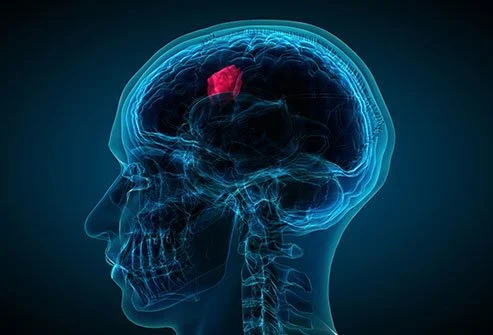
AT the moment, the COVID-19 pandemic is the focus of the global community and an all-consuming thought to the healthcare system worldwide.
As we continue the fight against COVID-19 in Zimbabwe, let us bear in mind that we also need to raise awareness and spending towards brain cancer research, detection and treatment during this month.
In recognition of International Brain Cancer Awareness Month which is May, Talk Cancer Zim today offers you an insight into the malignancy.
Brain tumours account for about 2% of all cancer deaths and the estimated global incidence of brain cancer is 8-10/1 000 000 of the population.
According to the Zimbabwe national cancer registry the incidence of brain cancer is 1,6%.
Although brain cancer only makes a very small percentage of cancers in Zimbabwe, the reality of its lasting and life altering cognitive, physical, psychological compromises make it particularly very important and worth our attention in fighting it.
What are the risk factors?
Because of the COVID-19 pandemic, there has been a lot of anxiety, depression and stress since the pandemic onset and there is some notion that chronic stress could be somehow linked to cancer.
- Chamisa under fire over US$120K donation
- Mavhunga puts DeMbare into Chibuku quarterfinals
- Pension funds bet on Cabora Bassa oilfields
- Councils defy govt fire tender directive
Keep Reading
To date there is no clear evidence that stress directly causes cancer let alone brain cancer.
The fact is that stress prompts people to turn to unhealthy coping mechanisms such as smoking, drinking excessively and overeating.
At the end of the day, it is only wise to conclude that it is not stress that causes cancer, but it is the unhealthy behaviours that come with being stressed.
Understanding the risk factors for any disease can help provide guidance on how to reduce incidence. Unfortunately, there is no conclusive research towards the environmental risk factors for brain cancer. The only clear hazard is exposure to ionizing radiation.
The other factor is family history and genetic predisposition though this correlation is not very strong. The risk factors are much less defined for brain cancer than for other cancers.
On the other hand, there are anticancer behaviours that could help prevent brain cancer. These are dietary factors such as eating fruits and vegetables by mothers during pregnancy and by children in early stages of life.
Below is a comprehensive list of brain cancer signs and symptoms that we should be wary of:
- Headaches that gradually become more frequent and severe
- Unexplained nausea and vomiting
- Vision problems such as blurred vision, double vision, loss of peripheral vision
- Gradual loss of sensation or movement in an arm or leg
- Difficulty with balance
- Speech difficulties
- Personality or behavioural changes
- Seizures
- Hearing problems.
Please make an appointment with a doctor if symptoms persist to rule out the possibility of brain cancer. Do not downplay them, the earlier you get a diagnosis, the higher your chances of surviving brain cancer.
Treatment options
- If you have a brain tumour treatment will depend on:
- The type of tumour
- Its location in the brain
- How big it is
- How abnormal the cells are
- Overall health and fitness.
In summary, treatment for brain cancer includes steroids, surgery, radiotherapy and chemotherapy. The management of brain cancer calls for the multidisciplinary team approach to achieve good prognosis and an improved quality of life for the brain cancer patient. It is against this background that Talk Cancer Zim in partnership with the Zimbabwe Neurological Association is hosting the national brain cancer webinar this May for health professionals across the country under the theme: Advancing in brain cancer care, where are we?
Sharing of ideas, concepts and improving the practice as health professionals in cancer care will go a long way in reducing morbidity and mortality due to brain cancer in Zimbabwe.











